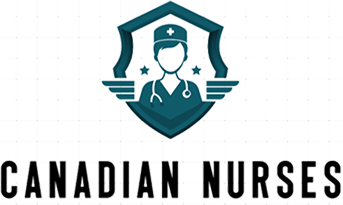Nursing is a dynamic and critical field within the healthcare sector, characterized by a diverse range of responsibilities that are pivotal to patient care and health outcomes. Nurses play essential roles that span from clinical care to emotional support for patients and families. This article explores the major responsibilities of nurses, shedding light on why they are considered the backbone of healthcare systems worldwide.
Patient Assessment
One of the primary responsibilities of a nurse is to assess patient health problems and needs. This initial assessment is crucial as it forms the foundation of the patient care plan. Nurses use their skills to gather vital information through physical exams, patient history, and diagnostic tests. Based on their assessments, nurses monitor patient conditions and must recognize any changes in order to adjust care as necessary.
Care Planning and Management
After assessing patients, nurses develop and manage comprehensive care plans in collaboration with physicians and other healthcare team members. These plans outline the strategy for administering treatment, managing pain, providing wound care, administering medications, and monitoring other health parameters. Nurses are responsible for updating the care plan based on the patient’s progress and specific needs, ensuring that each patient receives individualized care.
Administering Medications and Treatments
Nurses are often responsible for administering medications and treatments prescribed by physicians. This involves a high level of precision and attention to detail to ensure that patients receive the correct dosage at the right time, and to monitor for adverse reactions. In many settings, nurses also perform and manage treatments like intravenous infusions, vaccinations, and other medical protocols essential to the patient’s recovery and health maintenance.
Patient Education
Education is a significant part of a nurse’s role. Nurses educate patients and their families about managing illnesses or injuries, including post-treatment home care needs, diet, and exercise. Effective communication skills are essential as nurses must be able to convey complex information in a way that is understandable for non-medical audiences. This responsibility helps empower patients to take an active role in their health management.
Advocacy
Nurses advocate for the health, welfare, and rights of their patients, including promoting safe environments. They serve as intermediaries between patients, doctors, and other healthcare professionals to ensure that a patient’s perspective and rights are recognized and respected. Advocacy also extends to participating in discussions about healthcare policies to represent the interests of the field and the patients.
Emotional Support
Nurses often provide emotional, psychological, and social support to patients as well as their families. The therapeutic relationship that develops can significantly affect the patient’s well-being and their ability to cope with stress, illness, or injury. Nurses must use empathy and communication skills to help patients and family members deal with medical conditions, possibly terminal illnesses, or the death of loved ones.
Documentation and Record Keeping
Accurate documentation and efficient management of patient records are critical tasks that nurses undertake. Documentation must include all assessments, care provided, medications administered, patient responses, and communication between other healthcare providers. This information is vital for continuity of care, legal compliance, and billing purposes.
Infection Control
Maintaining stringent hygiene and infection control standards is another key nursing responsibility, especially crucial in settings like hospitals where the risk of infection is high. Nurses ensure that the environment is safe and clean, implement strategies to minimize disease transmission, and manage isolation procedures when necessary.
Handling Medical Emergencies
Nurses often find themselves at the forefront of medical emergencies. They must be able to quickly assess a situation, administer first aid, perform CPR, and use medical equipment such as defibrillators. The ability to remain calm under pressure, think critically, and act swiftly could be the difference between life and death.
Continuing Education and Professional Development
The field of healthcare is always evolving, driven by innovations in medical technology and changes in healthcare protocols. Nurses are required to stay updated through continuing education. This may include attending workshops, taking courses, or participating in professional conferences and seminars to enhance their knowledge and skills.
Takeaway
Nurses shoulder diverse and significant responsibilities that extend far beyond basic patient care. Their roles demand a mix of scientific knowledge, technical expertise, interpersonal skills, and emotional strength.
By fulfilling these responsibilities, nurses ensure not only the health and safety of their patients but also enhance the effectiveness of the healthcare system as a whole. As such, the importance of nurses in the healthcare system cannot be overstated, and their contributions must be recognized and valued at all levels.

